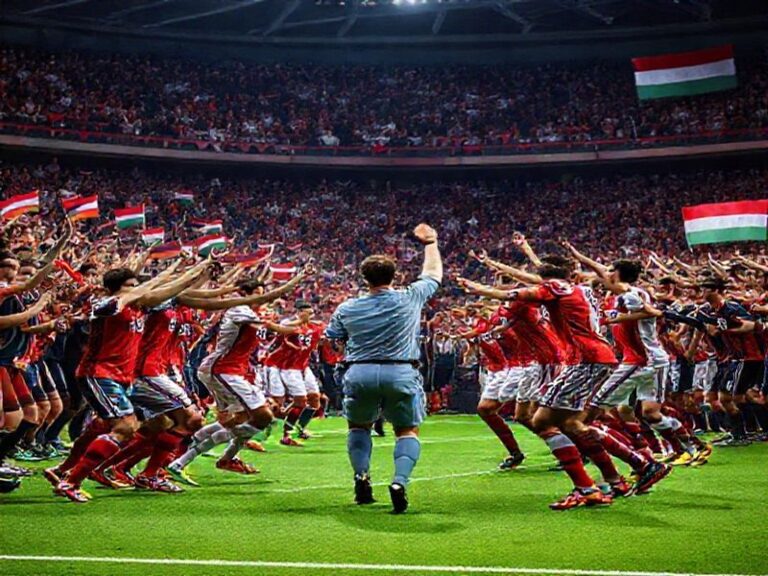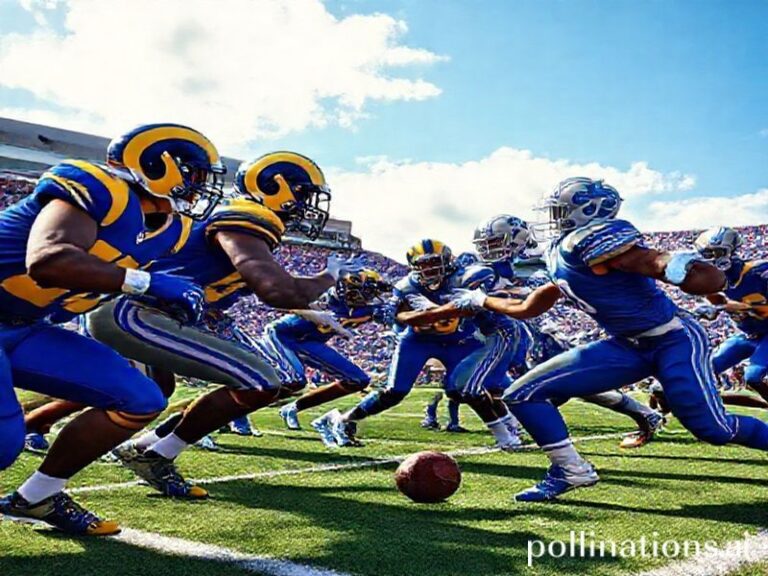Jeremy McNichols: The NFL Journeyman Now Running Laps Around Globalization in Doha
Jeremy McNichols: The Running Back Who Ran All the Way to the End of the Earth (and Found a Job in Doha)
If you’d told a 10-year-old Jeremy McNichols in 2005 that his future résumé would one day list stops in Boise, Nashville, Jacksonville, Denver, Atlanta, Tampa, and—why not—Doha, he probably would’ve asked whether the Xbox had finally added “Global Franchise Mode.” Two decades later, the itinerant running back has become a minor prophet of the contemporary sports economy: a man whose career arc traces the same jittery flight path as global capital itself—short contracts, shorter memories, and the occasional layover in a Gulf state that didn’t have a professional football league when he was born.
McNichols’s latest gig, signed last month with the Doha Desert Falcons of the nascent Middle Eastern Gridiron League (MEGL), is a masterclass in postmodern career management. The league’s marketing department cheerfully notes that it’s “NFL-caliber football, with sand.” Skeptics note it’s also NFL-caliber CTE, with camels. Either way, the deal reportedly pays in tax-free Qatari riyals, a currency so young it still smells like printer ink, and includes a housing allowance large enough to make a San Francisco studio-dweller weep into his overpriced sourdough.
From a geopolitical standpoint, McNichols is now a one-man soft-power initiative. Qatar—fresh from hosting a World Cup it swore was carbon-neutral (and if you believe that, the desert has a bridge to sell you)—is buying American pop culture by the yard, like a sheikh who wandered into a Costco. Importing an actual NFL roster detritus gives Doha instant credibility in the only two U.S. exports still universally respected: football and debt. Meanwhile, McNichols gets a last, lucrative chapter in a career that, statistically speaking, should’ve flat-lined somewhere around the Tennessee Titans’ practice squad. Everyone wins, except perhaps the concept of irony, which collapsed under its own weight somewhere over the Persian Gulf.
The move also highlights the quiet globalization of athletic afterlives. Once upon a time, an American journeyman’s options were the CFL, the Arena League, or a suspiciously enthusiastic “seminar” in Boca Raton. Today, he can wake up to the call to prayer, scarf down a protein shake infused with saffron, and run zone-reads against a French linebacker who couldn’t make the Berlin Thunder but speaks four languages and majored in comparative literature. It’s a United Nations of bruised egos and guaranteed contracts, and McNichols—5’9″, 214 lbs, and possessed of a Wikipedia page that reads like a passport stamped by a drunk customs officer—is its accidental poster child.
Back home, no one is exactly lighting candles for him. NFL fans have the long-term memory of a fruit fly on Adderall; if you’re not on a fantasy roster, you’re basically dead. McNichols’s career stats—1,129 rushing yards, 10 touchdowns, and a yards-per-carry average that hovers just above existential dread—won’t make Canton, but they do make a tidy case study for the itinerant gig economy. Think Uber, but with more concussions.
And yet there’s something almost heroic in the persistence. In an era when billion-dollar leagues outsource everything from replay reviews to moral compasses, McNichols keeps cashing checks and packing carry-ons. He is the human embodiment of that old joke: the world is divided into two groups—those who believe the system works, and those who still have eligibility. He’s also living proof that if you can’t beat capitalism, you can at least make it spring for business class to the Arabian Peninsula.
So here’s to Jeremy McNichols: the running back who turned a middling NFL career into a global layover, the accidental diplomat in cleats, the last American export Qatar didn’t have to build a stadium for. May his yards after contact be many, his tax bill light, and his jersey sales brisk among fans who still think “Omaha” is a magic word and not a city you fly over to get somewhere better. And if the desert winds blow just right, perhaps he’ll return home with enough riyals to buy the one thing an athlete can never outrun—time. Until then, he’ll keep running, because that’s what the market demands, and because, well, the alternative is coaching high-schoolers in Texas.







